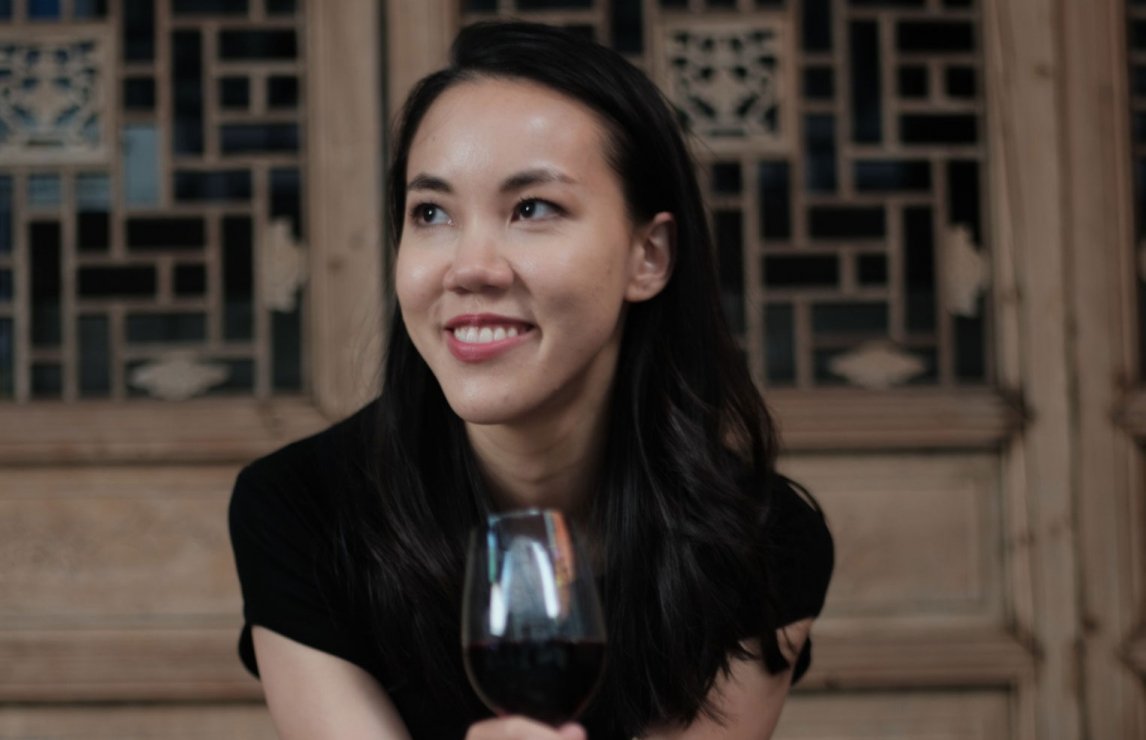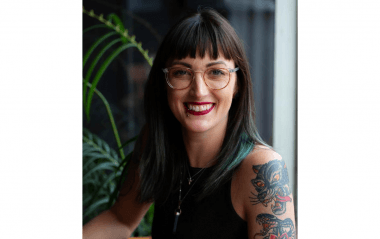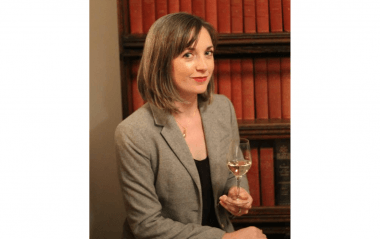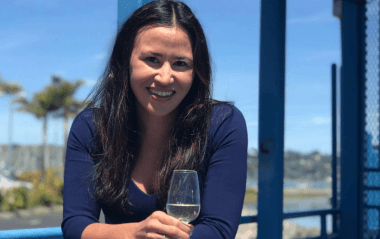Future 50 Q&A: Sarah Heller MW
The Future 50 is a new initiative created by WSET and IWSC to select 50 future influencers of the global drinks industry. Find out more and view the final list here.
Asia-Pacific's youngest Master of Wine Sarah Heller has spent her time in lockdown writing, teaching online, and working on her Visual Tasting Note series.
What do you do?
I have a range of wine-related projects, most of which also incorporate art or design since that's what I originally studied. For example, I have a collection of glassware that I designed with the Thai crystal brand Lucaris; an art series called Visual Tasting Notes that I've exhibited internationally and published in various publications; and a wine brand I developed with several partners to highlight and revive the forgotten grapes and wine styles of Central Europe.
I also have educational, editorial and competition projects: I have an online educational video course with over 5 million students and I’m on the Faculty of the Vinitaly International Academy. I’m wine editor for Tatler in Asia, a columnist for Club Oenologique, and chairman of WINE100.
How has your work been affected by the coronavirus outbreak?
A lot of my work involves in-person events and/or tasting, and that has, of course, been significantly disrupted. However, other things I do have been amazingly resilient — a lot of teaching has moved online, writing can be done from anywhere and ironically the coronavirus has actually boosted my art output because I’ve been able to re-allocate the time I would have spent travelling into creating art.
How are you spending your time during the lockdown?
As I say, I’m spending a lot of time making art — primarily my Visual Tasting Note series — and I finally have a few images up on Instagram again as well as on my new Weixin official account. I’ve also made a real dent in my backlog of tasting samples for that series, as well as having the chance to experiment with various different media (painting, sculpture, etc.) so there are lots of new developments in the pipeline.
Best of all, I've had more time for my children — my toddler is a budding artist himself and it’s been extraordinarily fun being able to explore that side of his personality together.
What is your proudest achievement so far?
I would have to say it was the span of months in 2017 when I became both a Master of Wine and a first-time mother (in fact, a very sweet friend from outside of the industry thought my newly appended “MW” stood for “Mother of Winston,” my son’s name!).
Any updates since you won the Future 50 award last year?
I’ve been appointed to the Wine Judging Committee of the IWSC, and been made chairman of WINE100 and senior general chairman and president of Vinitaly International's 5StarWines. The television documentary I co-hosted, Wine Masters, has also launched and I have signed on to host an educational series for them.
What’s been your best wine of 2020?
Clos des Goisses 2004.
Do you have any advice for people starting out in the drinks industry?
Make sure you’re doing it for the right reasons — sadly, just loving the product probably isn’t enough. If you’re crazy about wine but don’t have a plan for how to make money out of it, you’re better off sticking to the day job and keeping wine as a hobby.
Have you got any particular ambitions or plans in motion?
Since my usual plans of traveling around Asia, the US and Europe are probably not feasible for much of this year, one big plan is to work on my art, which I’m lucky enough to be able to do from my studio at home. There’s also a possible book in the works.
How do you think the industry will begin to move forward from the coronavirus crisis?
A solution I hope the industry will embrace is building a more cohesive and compelling online presence that will allow us to maintain more contact with end customers (and hopefully drive sales!) while everyone is forced to stay home. As someone living in close quarters in a city, maintaining contact with friends working their vineyards and watching the vines come to life has been really life-affirming.
What excites you in the drinks industry right now?
The ability of small brands to achieve break out success through alternative business models is really encouraging. The Central European project I mentioned, the Almásy Collection, has been able to reach new customers in underserved markets in China, Southeast Asia and Eastern Europe because we’ve partnered directly with small distributors, sometimes offering them a stake in the business as an incentive.
How has working with IWSC helped you?
The IWSC is widely recognised as a thought leader in the wine world; being formally associated with the organisation has given me a great platform to connect with those driving the business globally.



